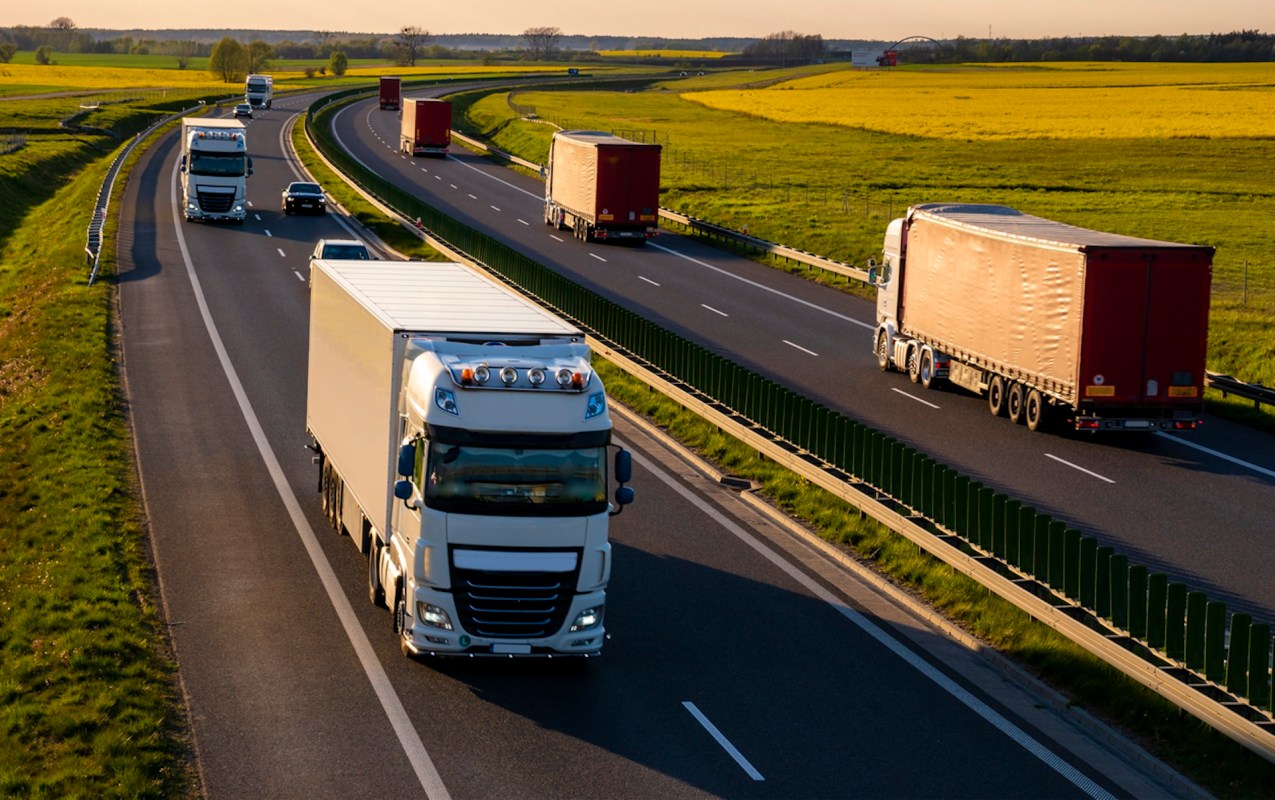On Jan. 18, members of the European Parliament and member states agreed on a plan to ban the sales of nearly all new diesel trucks by 2040 in the European Union to help combat rising global temperatures.
Automakers must limit the average emissions of new heavy goods vehicles weighing over 7.5 metric tons (8.3 tons) by 45% until 2030, 65% in 2035, and 90% by 2040, a press release said. The European Parliament and member states must approve the legislation for it to take effect.
Should it pass, specialized vehicles like garbage trucks and cement mixers will be exempt until 2035, while urban buses utilizing combustion engines will be banned starting that same year. Fire trucks, small-volume vehicles, and agricultural vehicles like tractors are exempt.
"The new rules will contribute to fulfilling the EU's 2030 climate ambitions and reaching climate neutrality by 2050," the statement read. "The proposal also aims to encourage an increasing share of zero-emission vehicles in the EU-wide heavy-duty vehicle fleet, while ensuring that innovation in the sector and its competitiveness are preserved and enhanced."
Heavy-duty vehicles are the second-biggest polluter in Europe behind cars in the transportation sector, accounting for 25% of road transport emissions.
While Europe's largest truckmakers, including Daimler Truck, Scania, Man, Volvo, Daf, Iveco, and Ford, already promised three years ago to transition away from diesel by 2040, industry leaders believe the shift to battery-electric and hydrogen-powered vehicles is easier said than done.
Watch now: Solar-powered boats from the Honnold Foundation are making a difference in the Amazon
The lack of charging and refilling stations for heavy-duty vehicles has acted as a roadblock since the trucks would take a while to recharge. That's why Daimler Truck thinks there needs to be more incentive to facilitate a transition to emission-free trucks.
"As long as there is not sufficient charging and hydrogen refuelling infrastructure available across Europe, and operating costs of diesel vehicles over the lifecycle are cheaper, the customers will still buy diesel," representatives from German vehicle manufacturer said.
Transport & Environment, a European advocacy group, estimated that 30% of trucks sold in 2030 and at least 75% in 2040 would run on electricity or hydrogen if the legislation passes.
 If you're thinking about buying an EV, which of these factors is most likely to convince you that it's a smart decision?
If you're thinking about buying an EV, which of these factors is most likely to convince you that it's a smart decision?
 Seeing friends and family buy EVs
Seeing friends and family buy EVs 
 Seeing first responders use EVs
Seeing first responders use EVs 
 Seeing businesses use EVs
Seeing businesses use EVs 
 Seeing celebrities drive EVs
Seeing celebrities drive EVs 
 Click your choice to see results and speak your mind
Click your choice to see results and speak your mind
Another lobby group in the European Automobile Manufacturers' Association stated that trucks accounted for 77% of all land transport of goods in the EU, meaning that there will need to be 400,000 zero-emission trucks by 2030 to hit that number.
TCD Picks » Upway Spotlight

"The EU is clearly telling truckmakers when almost all their vehicles will need to be zero emissions," said Fedor Unterlohner, freight manager at T&E. "European producers now have a clear trajectory to ramp up production of electric and hydrogen rigs and be ready for the challenge posed by [U.S. carmaker] Tesla and Chinese rivals."
"This new regulation will stimulate the market for truly zero-emission solutions like electric trucks," said Sandra Roling, head of transport at the Climate Group, which helps companies become environmentally conscious.
Join our free newsletter for cool news and actionable info that makes it easy to help yourself while helping the planet.














